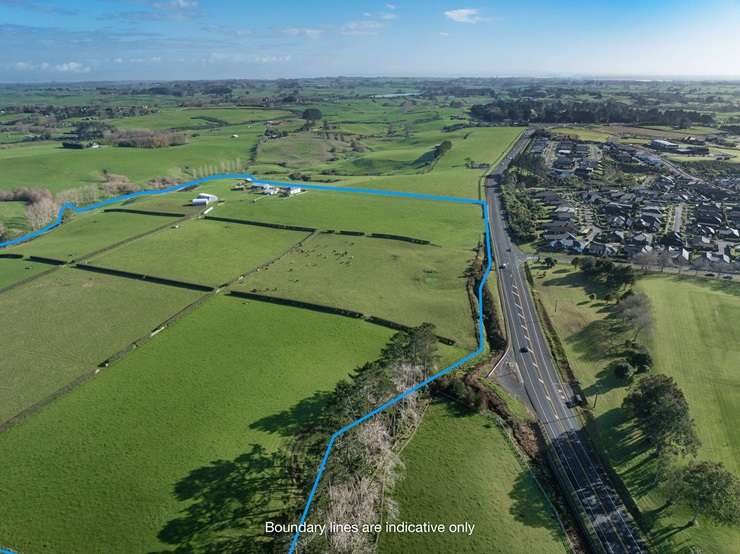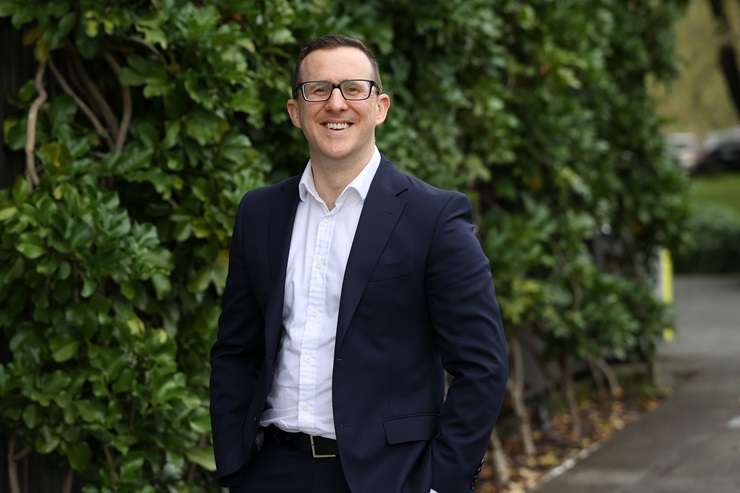Land-bankers are quietly buying up large tracts of rural land on the fringes of Auckland, betting that their multi-million-dollar investments will reap huge profits when the housing market picks up again.
Real estate agents have told OneRoof that developers and wealthy investors are looking to secure land with development potential while prices are soft.
Harcourts agent Jeneen Binsted said she was fielding developer interest in her listing at 146 Top Road, in Dairy Flat, Rodney. The property comes with a three-bedroom bungalow and an 1800sqm glasshouse, but the value of the one-hectare property lies primarily in its location and future potential.
The site, which has a $2.15m CV, is zoned Future Urban, which means it can be carved into profitable residential sections at a future date.
Start your property search
Discover more:
- 'Pukevegas' the one to watch: Prices in rural fringe about to take off
- Inspections in crisis: Buyers spending up to $10,000 on 'worthless' building reports
- Historic manor saved from ruin and rats for sale for just over $1m
The site is expected to be split in two by the O Mahurangi Penlink, a 7km highway set to join Whangaparāoa Road and State Highway 1. That may not happen for 10 to 30 years, said Binsted. In the meantime, the property has multiple income streams that will help pay the holding costs.
“The property has come to the market because the owners purchased it in 2021 with the view to growing the plants for their landscaping business,” she told OneRoof.
“It was previously a tomato growing enterprise [and] was ideal. It had the glasshouse and a good water supply, as well as an office storage building and a house.
“The owners wanted to expand the business, but unfortunately, in the last year, they received notification from Auckland Transport that the Penlink will go right through the property.
“The quandary for my clients is do they put money in to expand the business or do they sell now. They are happy to stay and lease the property [from the new owner] and continue their growing.
“It is a very valuable location.”
Land-banking is a long game, though, and it can take years or even decades for purchases to turn a profit. Buyers are often taking a punt that a city or town will expand into the areas they’ve bought and rezone the land.

A 21.59ha farm for sale at 786 Paerata Road, in Paerata. The property is across the road from the Paerata Rise master-planned development. Photo / Supplied
Land-bankers may do no more than sit on the land or lease it to a farmer or business, then sell when market conditions are right. Others go all the way and subdivide when it becomes suitably lucrative.
Harcourts agent Andrew Whiteley, who is marketing a 21.59ha farm at 786 Paerata Road, in Paerata, in Auckland’s southern fringe, said holding onto land could be expensive.
Whiteley’s listing is directly across the road from Paerata Rise, a huge master-planned community that came on stream in 2018. It has been farmed by the same family since the 1970s, when there was little inkling that Auckland would expand.
When the land was rezoned future urban, the jump in rates was too much for the owners. The CV went from $6.47m in July 2017 to $17.8m in June 2021 thanks to the zone change. “Your rates on that place are $27,500 annually,” Whiteley told OneRoof. “Then there’s insurance.”
The agent said a number of large investors and land-bankers were active in the area, including Searle Group and Grafton Downs. Searle Group typically develops land then builds homes, said Whiteley. Grafton Downs, which was behind Paerata Rise, was a land developer which on-sells sections it has subdivided.
Chris Farhi, head of insights at Bayleys, told OneRoof the land-banking market had softened in recent years.
“The reason is basically the same as what’s happening in the wider housing market. Higher interest rates, [and] a bit of downward pressure on values over the past two years. That’s reduced the demand generally for larger tracts of land that might be suitable for development in the future.”

Bayleys head of insights Chris Farhi: "If it is a desirable land-bank, you are up against the big developers." Photo / Supplied
Much of the evidence is anecdotal, said Farhi, but it appeared as if larger developers were starting to top up their holdings to secure a long-term pipeline.
“If you went back four or five years, one of the challenges that a lot of the larger developers were having was securing land so that they could continue to crack through development and have product available. If they run out of land, they run out of the ability to do business.”
Farhi said high net worth individuals were also taking a long-term view and in purchasing mode.
Real estate agents do get approached by first-time land-bankers who think it might be lucrative. Farhi advised such buyers to be careful, especially if they have to borrow to buy.
“You’re purchasing rural assets on the speculation that in the future they’ll be suitable for some sort of development,” he said.
“Where the risk comes in is, if the zoning, the availability of infrastructure, or the timing doesn’t pan out the way you expect it to, there’s a chance that you’re just not going to get the sort of outcome that you want.
“You’re also taking on some of the risk around how successful the property could be as a development.”
First-timers are also likely to be competing with people who know what they’re doing. “If it is a desirable land-bank, you are up against the big developers. It’s pretty hard to purchase a secret.”
- Click here to find more properties for sale in Auckland


















































































